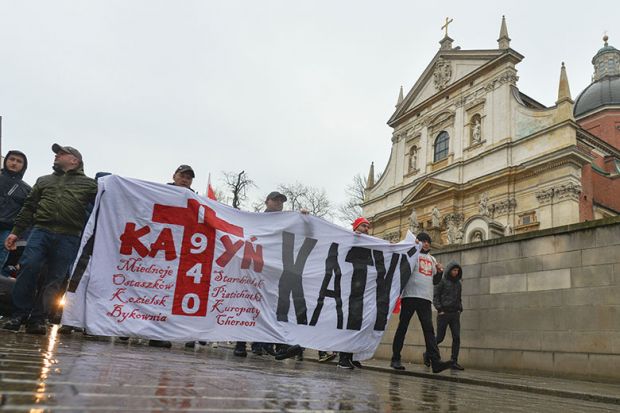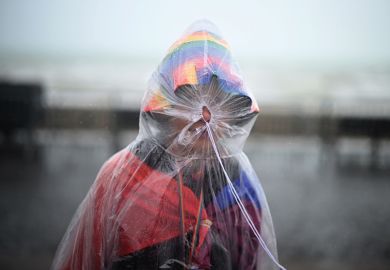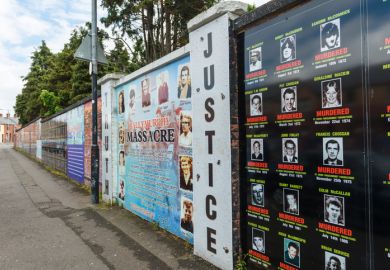On 13 April 1943, Berlin Radio broadcast an astonishing piece of news. In the forest of Katyn, near Smolensk in what was then Nazi-occupied Russia, a mass grave containing the bodies of some 4,000 Polish army officers had been discovered. Nazi propaganda chief Josef Goebbels was ecstatic. He knew that German forces could not have been responsible for the deaths – dating from 1940 – of these military personnel. He lost no time in marshalling a committee of unimpeachable Red Cross experts to examine the remains and help him prove that responsibility for the massacre lay with the Soviet Union (specifically organs of the Soviet secret police), hoping thereby to drive a wedge between the USSR and its European and American allies.
Goebbels was right to point the finger at the USSR. Indeed, following the Katyn discovery, other Polish mass graves were uncovered in Mednoye, north-east of Smolensk, and at Kharkov (in the Ukraine), to its south. In all, the bodies of 21,857 Poles were excavated and recovered.
These deaths, as solemnly confirmed by the Russian authorities after the fall of the USSR, were all the responsibility of the then general secretary of the Communist Party of the Soviet Union, Joseph Stalin, who personally signed off a recommendation (5 March 1940) from Lavrentiy Beria, then chief of the People’s Commissariat for Internal Affairs. Polish prisoners of war taken after the Soviet invasion of eastern Poland were to be interrogated with a view to identifying “officers, officials, landowners, police, intelligence agents, gendarmes, military settlers, and prison guards” who might be regarded as in any sense potential counter-revolutionaries. Following these interrogations, a “special procedure” was to be applied to those so identified, namely execution by shooting. Even the formality of a show trial was to be dispensed with.
This is a grim story, thoroughly researched and brilliantly told. But what I found no less depressing was Jane Rogoyska’s compelling narrative of the post-war cover-up. There has never been a war-crimes trial of those responsible for the so-called Katyn massacres, and there never will be. Even at the height of the Cold War, the Republican president of the US, Dwight Eisenhower, was unwilling to publicly embarrass the USSR by pressing for an international trial. When, in 1976 and following pressure from the UK’s Polish diaspora, a memorial was unveiled in Gunnersbury Cemetery, west London, Labour prime minister Jim Callaghan was careful to ensure that no official UK government representative attended the ceremony.
The true purpose of the massacres seems to have been to denude a conquered Poland of any military, cultural or intellectual leadership that might have challenged Soviet-Marxist orthodoxies. But while in present-day Russia the reality of Katyn is no longer seriously denied, it is (as I have found) audaciously contextualised, a favourite excuse being that Katyn was “payback” for massacres of Russian soldiers by the Poles in the Polish-Soviet War of 1919-21.
The wider truth is that Joseph Stalin was responsible for many more deaths and massacres than Adolf Hitler. But earlier this year Russian president Putin approved legislation outlawing comparisons of the USSR and Nazi Germany. How long can it be before Rogoyska’s definitive volume is unobtainable, even unmentionable, in the Russian state?
Geoffrey Alderman is principal of Nelson College, London.
Surviving Katyn: Stalin’s Polish Massacre and the Search for Truth
By Jane Rogoyska
Oneworld, 400pp, £20.00
ISBN 9781786078926
Published 6 May 2021
Register to continue
Why register?
- Registration is free and only takes a moment
- Once registered, you can read 3 articles a month
- Sign up for our newsletter
Subscribe
Or subscribe for unlimited access to:
- Unlimited access to news, views, insights & reviews
- Digital editions
- Digital access to THE’s university and college rankings analysis
Already registered or a current subscriber? Login







